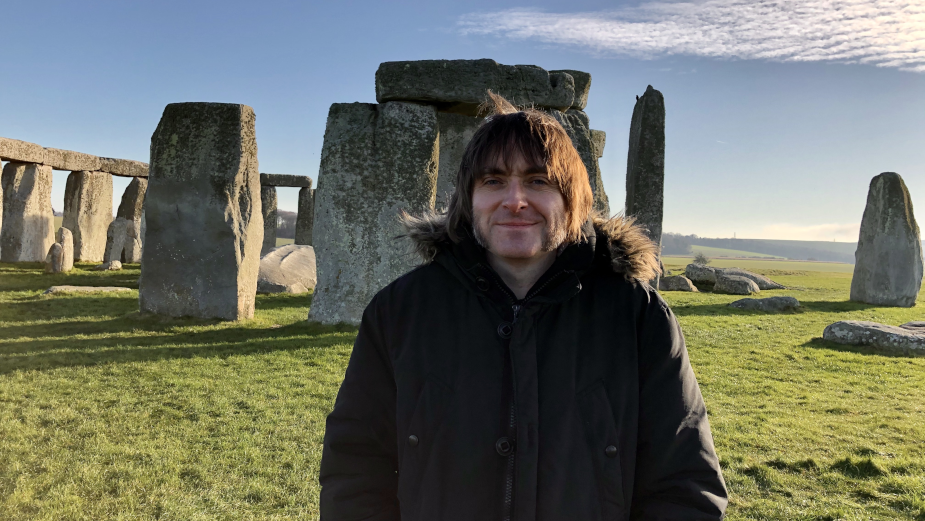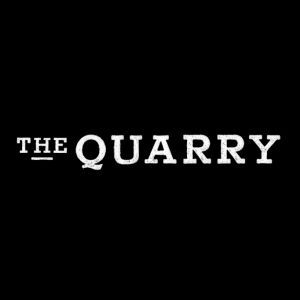
Finely Sliced: The Rhythm of the Session with Scott Cato

Scott grew up in Whitley Bay on the north east coast, an obsession with Hammer Horror films and science fiction led him to dream of a career in filmmaking. After a stint delivering fruit and veg, window cleaning, working in a stationary shop and studying photography, he got his first running gig at De Lane Lea, before arriving at The Quarry in 2002.
He works with the likes of Peter Cattaneo, Kevin Thomas, Tim Pope and Chris Palmer on commercials for Nike, Waitrose, Walkers, Vodafone and Cancer Research.
LBB> The first cut is the deepest: how do you like to start an editing project?
Scott> The first stages of an edit can greatly influence the way a job goes. Getting organised and making sure you know where everything is is vital. It’s great selecting the perfect shots but if you can’t find them once you’re in the full flow of the edit you’re going to have problems. I like to spend the first hours organising and selecting and getting to know the footage. As I’m selecting I try to pick out the best takes from each set-up and put all of them onto a timeline, then at the end of the selecting process I can quickly arrange them and get a feel for the piece.
LBB> Non-editors often think of editing just in technical terms but it’s integral to the emotion and mood of a film. How did you develop that side of your craft?
Scott> The edit has to deliver something that works technically but also engages emotionally. That's the whole point and the hardest part. You only get there by working and reworking the edit until it begins to reveal itself. You only really find out what works by putting together things that don’t work. You learn a lot from other people. It's important to listen to other people’s ideas and opinions, each person has an individual viewpoint and often the most interesting ideas come together when you’re just trying out different things. It's a process like any other with a beginning, middle and end and just a matter of going through the stages.
LBB> How important is an understanding of story and the mechanics of story?
Scott> You can’t edit something properly until you know what it's about, and sometimes the ideas inside a writer or director's head are not visible on the page of a script. At times, the story evolves during the edit and changes depending on the footage you are provided with. The hope is that you can bring something to the project, fulfil the brief and improve upon the idea.
LBB> Rhythm and a sense of musicality seem to be intrinsic to good editing (even when it’s a film without actual music) – how do you think about the rhythm side of editing, how do you feel out the beats of a scene or a spot? And do you like to cut to music?
Scott> Each job is different but there's nothing worse than not being able to find the right piece of music. You inherently know when you put a picture to music whether it works or not. Sometimes someone will suggest a track and you think “That will never work” but you lay it up and it clicks. It’s a strange beast and the best feeling when it works. It’s different with dialogue, sometimes I find the best way to cut is to turn the picture off or close my eyes. If the words flow well and work without picture, that’s half the battle. If the rhythm of the words feel right and you can understand the gist of the dialogue you can fix the picture along the way.
LBB> Tell us about a recent editing project that involved some interesting creative challenges.
Scott> Every job involves interesting creative challenges, that kind of is the job. The fun is making the piece manifest on the screen using the component pieces that you have to work with. In recent times what seems to happen is if an edit is well received, the clients will ask for a longer version for social media. Often you are already using all of the shots that were boarded so it takes work to create something which is longer and is as interesting with no additional footage. Problem solving is the best part of editing, each job is like a puzzle and you are using your skills to complete it.
LBB> How important is your relationship with the director and how do you approach difficult conversations when there is a creative difference of opinion?
Scott> You have to be open with the director. You cannot take it personally if someone disagrees with you. Sometimes client comments come through which will send the room into a rage but you have to remember that that is why we are there… to take everyone's ideas on board and create the best possible piece of work we can. It’s labour intensive but sometimes trying different versions so that everyone’s comments are addressed is the easiest way through. Failing that most directors will create their own cut.
LBB> What’s harder to cut around – too much material or not enough? (And why?)
Scott> Not enough. It’s a horrible feeling when you are drowning in rushes but if you select correctly you will find that material rapidly reduces. If you are given ten hours of rushes it would be unusual if all ten hours are usable. There really is nothing worse than not having the shot and having to cobble something together. The key to a happy edit is plenty of coverage and selecting a broad range of shots.
LBB> Which commercial projects are you proudest of and why?
Scott> I’ve always been a big fan of the band The Cure and their iconic music videos directed by Tim Pope. A couple of years ago our producer Tor Adams contacted me and said ‘I’ve got you a job with Tim Pope and the Cure are providing the Soundtrack’. My first thought was “Oh no! What if he’s a nightmare, it’ll ruin The Cure!”. However he came in and was one of the nicest people I’ve ever worked with. The track was a favourite song of mine and the job was a complete joy to work on. Added to that the Ad was for a great charity too!
LBB> There are so many different platforms for film content now, and even in advertising something can last anything from a few seconds to a couple of hours. As an editor, are you seeing a change in the kind of projects you’re getting from brands and agencies?
Scott> Every job is different and with so many different platforms now you constantly find new challenges. Scripted films with a set length aren’t the norm anymore. Sometimes that’s liberating, sometimes it's daunting. That said there is a lot more work around and no longer the case that everyone is chasing the same jobs. Every company has a website or uses social media so there will always be work for an editor!
LBB> Who are your editing heroes and why? What films or spots epitomise good editing for you?
Scott> It’s a difficult industry to work in. I think any editor/ director/ creative who manages to make a living while getting an exciting/ interesting project made is a hero! I’m not a fan of too much editing, same with sound design. I like to sit down and watch something and not notice the editing. For me the editing is all about presenting the idea or script in an entertaining or engaging way. Most recently I have enjoyed the Favreau/ Filoni Star Wars serial The Mandalorian. They have created something new and interesting out of a classic property. The episodes begin and it feels like two minutes later they are over and you can’t wait to see the next one! That to me is the mark of great film making!
LBB> How does editing in the commercial world differ from the film world and TV world?
Scott> Both involve the same techniques but are completely different disciplines. In longform you have the luxury of much more time to introduce the characters and tell the story but it takes a lot of stamina to work solely on one project for months/ years on end. I’ve edited many short films but never actually edited a feature. I prefer the variety in short form work, different people and ideas on every job.
LBB> Have you noticed any trends or changes in commercial editing over recent years?
Scott> I guess the main one is working remotely from home, that has radically changed the way we operate. Commercial editing is such a collaborative process and being able to stream your cut with virtually no lag to clients in Japan, New York, LA or wherever is mind blowing. Once you get into the rhythm of the session, everyone adapts and it’s as if they were in your suite. It has opened up a whole world of opportunities. With commercials you never know what you’re going to get next. That is part of the fun, sometimes it’s a traditional script, other times its drive full of clips and they say “Make something out of that”. I think the industry has always been in a state of flux, there are new trends, platforms, pieces of software, workflows, etc every few months yet the process of editing remains the same. The right shots in the right order.













